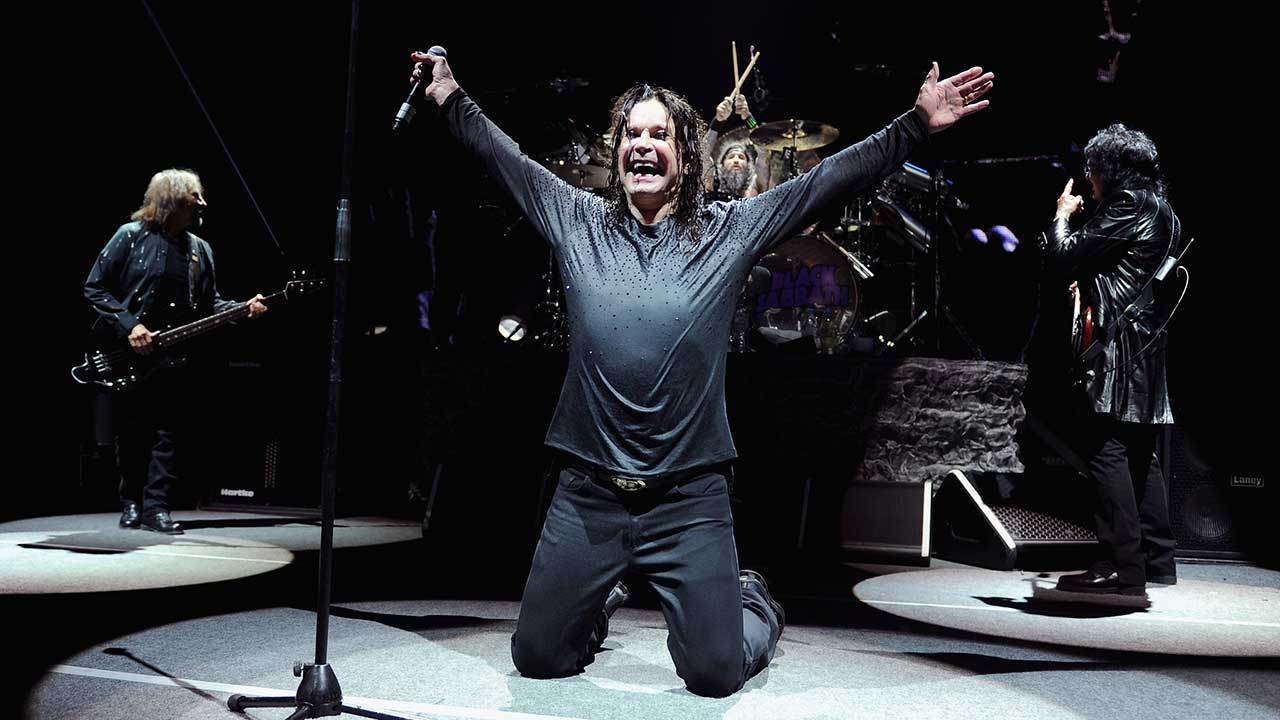“There’s no more Ozzy Osbournes anymore, there’s no more Black Sabbath’s anymore – they’re gone. Where’s the iconic bands that initially came out with the sounds that you love? I’ve never seen a band that impressed me that looks like they’re going to be the next Judas Priest or Iron Maiden.”
Not my words. But the words of Exodus vocalist Steve “Zetro” Souza. In a recent TV interview, he bemoaned that – since Slayer announced their final tour – he cannot envision any new bands taking over festival-headline slots once all the classic artists have retired. He believes that newer bands are not capable of living up to the legendary status of metals founding fathers.
To Steve Souza, I would like to say this. Of course there won’t be another Iron Maiden or Judas Priest. These mega stadium-filling giants are from a very different time. A time when you had to buy a record to hear it. A time when record companies could afford to put a significant amount of money into promotional campaigns, because they knew that – through record sales – they would see a financial return. With a big budget for promotion, a band could reach and gain millions of new fans through exposure. Enough to fill a stadium. Enough to headline Donington. Enough to become bona fide icons.
Have you ever considered that the difference between these classic metal giants and new upcoming bands, isn’t a lack of talent, but a lack of money in the music industry? Behind every “iconic band” was a huge recording budget, producers and an expensive advertising campaign. A stage show littered with props that cost a fortune. Behind every classic headliner band was a major record label who viewed them as an investment, not as a financial risk. Bands emerging now do not have the luxury of such solid financial support, but that does not mean their music isn’t worthwhile. They wade into an uncertain industry, desperately relying on t-shirt sales over record sales.
But I don’t need to tell you this, do I Zetro? You began performing with Exodus in 1986. You’ve witness the drastic change of the music industry with your own eyes. But, please, for a moment consider how vastly different the starting point is for new bands today.
When Iron Maiden formed in 1975, there was not an abundance of metal bands. It wasn’t an overpopulated genre then. Now there are tens of thousands of metal bands. In 1975, Heavy Metal was simply one genre. Now there’s black, death, thrash, djent, symphonic, power, post, doom… each subgenre claiming its own unique faction of fans, as opposed to one giant horde. When Iron Maiden formed, costly recording studios were the only way to make an album. Now anyone can download home recording software and produce their own records. It’s easier to make music, so more of it is being made. This means there are now tons of new metal bands for fans to choose from, as opposed to a small handful of big bands on major labels dominating the genre. Metal has never been more diverse, never offered so much variety within its sprawling offshoots. It’s no longer about catering to one mass audience. It’s no longer about becoming the biggest metal band in the world, it’s about innovating and bringing something new to the overcrowded table. Because the days of a new metal band raking in millions? THEY’RE GONE. But the talent is still well and truly here.
Yet, what new band would dare to dream of headlining a big festival when it’s evident that festival bookers won’t ever give them a chance to do so? Why would bookers take the risk on a newer band, when Metallica have reliably sold tickets since the eighties? The festival formula of rotating the same classic headlining bands remains firmly in its rut and opportunities for new bands to prove themselves remain scarce.
I am genuinely intrigued to find out which new bands “haven’t impressed” you. If you’re only grading talent on a bands ability to replicate the sound of Black Sabbath or Judas Priest, then you will never be pleased. Metal will always evolve, rather than emulate. It will always showcase something new. When we fixate on the impossible recreation of the past, we fail to appreciate the new bands that are emerging right in front of us.
Bands like Architects, who worked relentlessly hard since 2004 and are now playing Wembley arena next year. Bands like Gloryhammer who showcase a songwriting ability to rival Iron Maiden. Bands like Deafheaven who are taking black metal to a whole new audience. Bands like Avenged Sevenfold who reached Number One in the UK Album Charts in 2013. They may not sound exactly like your precious Classic Bands, but they are taking metal to new places, to new heights. They are flying the flag in their own ways and captivating new audiences while doing so. Who’s to say that we won’t see a field full of metalheads singing along to the massive anthems of Mastodon rather than Metallica in ten years’ time? No one can predict the future of metal. That’s what keeps it so exciting.
Or would you rather metal stagnated like mainstream cinema? Trapped in a perpetual cycle of Black Sabbath remakes? Always afraid to take new risks?
While I appreciate that metal is deeply rooted in tradition, we can’t keep placing older bands on a pedestal then complaining that newer bands don’t measure up to them. So when someone like you Steve, a well-established icon from thrash metal's heyday, promotes this dismissive attitude towards younger bands – it perpetuates this toxic myth that nothing will ever be as good as the old days. This is simply not true. Nothing will ever be the same as the old days, but that doesn’t mean it won’t be good.
Take Ghost, for example. In an era of social media, endless available information on your favourite musicians, Ghost have still managed to create a secretive aura of mystique. The imagination behind their theatrical imagery, coupled with the credibility of their sound, puts them right up there among the greatest metal icons. They showcase a timeless quality in their music, and their unstoppable rise demonstrates that a band – who emerged in 2006 – are just as capable of giving an enchanting headline performance as Iron Maiden.
So this is why we need to give new bands a chance! A chance to be themselves, not to recreate former glory. That’s the whole message here. It’s already a very tough climate for bands trying to breakthrough in music today, the last thing they need is discouragement and doubt from their peers.

Svalbard are playing two UK shows with Enslaved in October.
06 Oct: Milton Keynes Craufurd Arms,
07 Oct: Leeds, Brudenell

